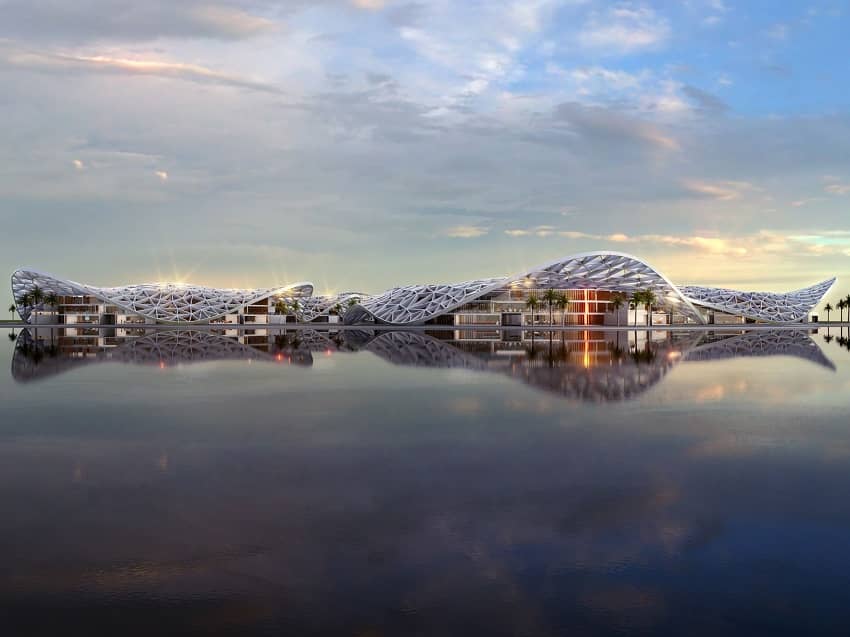The urban tech district in Dubai’s Al Jaddaf neighborhood will generate 4000 jobs in green urban tech, education, and training. It will also be the location of venture capital, which will drive entrepreneurs and support a distinctively collaborative urban tech environment.
Future cities will be built around urban technology. The issues posed by urbanization in a variety of areas, including zero-mile food production, food security, inexpensive & scalable renewable energy, low energy demand water harvesting, zero-waste management, and waste-to-energy solutions, are being addressed through tech-enabled urban developments. These are just a few of the numerous issues that our cities are dealing with.
Baharash Bagherian CEO of URB, said: “Dubai is best positioned to lead the Urban Tech Transformation than any other city in the world. The Urban Tech District will be a new global tech hub for urban innovation. With a total of 140,000m2 of built-up area, it will be the world’s largest urban tech district. Thus making Dubai the centre for urban innovation.”
The new zone will offer conference rooms, training grounds, research labs, seminar rooms, business incubators, and other attractions. All of the building’s embodied carbon emissions during construction and use will also be offset. A low-carbon workforce will be made possible by the development’s role as a net zero-carbon district in lowering the carbon footprint of its partner companies.
At the center of the Urban Tech District will be innovation. The district will make it possible for urban-tech solutions to develop on a much greater scale and will also give innovators working on some of the most important sustainable city concerns access to funding opportunities. The area will offer chances for a new generation of creative businesses in need of a platform to expand quickly.
The urban tech institute, which will nurture the subsequent generation of urban tech leaders, will also be located in the district. The institute will promote public-private cooperation while offering chances to test out brand-new innovations based on applied research.
What is Urban Tech?
Any technology that solves problems associated with urban living is referred to as “urban tech.” Urban tech can be incorporated into city design to produce more fair living circumstances. New developments in urban technology can have a big impact on how our cities can give their residents a more livable and resilient environment. Impactful urban technologies are now essential as societies become more and more digital.
However, the phrase is quickly changing to include the hazards of climate change and other environmental problems. Thus, “green urban tech” is a new word that is becoming more popular. Urban tech districts have the responsibility of fostering the expansion of businesses that are inventing and developing such technologies in order to build a cooperative urban tech ecosystem.
Why Urban Tech District?
Nearly 70% of the world’s population is projected to reside in cities by 2050. Rapid urbanization and population growth, along with climate change, will have detrimental effects on the resources and infrastructure of our cities, as well as on the health and welfare of their inhabitants.
The United Nations predicts that by 2030, there will be 41 megacities or cities with a population of more than 10 million. To ensure that cities remain sustainable, we will need to make a fundamental change in how we integrate technology into them.
The Urban Tech District will enable business owners to completely focus on creating fresh solutions for the upcoming generation of sustainable cities around the globe, accelerating the development of much-needed solutions. It will develop into a real-world testing ground for entrepreneurship and urban planning innovation. The district will offer investment possibilities and assistance with scaling urban technology solutions.
In the end, the urban tech area will bring in funding, and support startups, business owners, and education, enabling a distinctive collaborative urban tech ecosystem.
